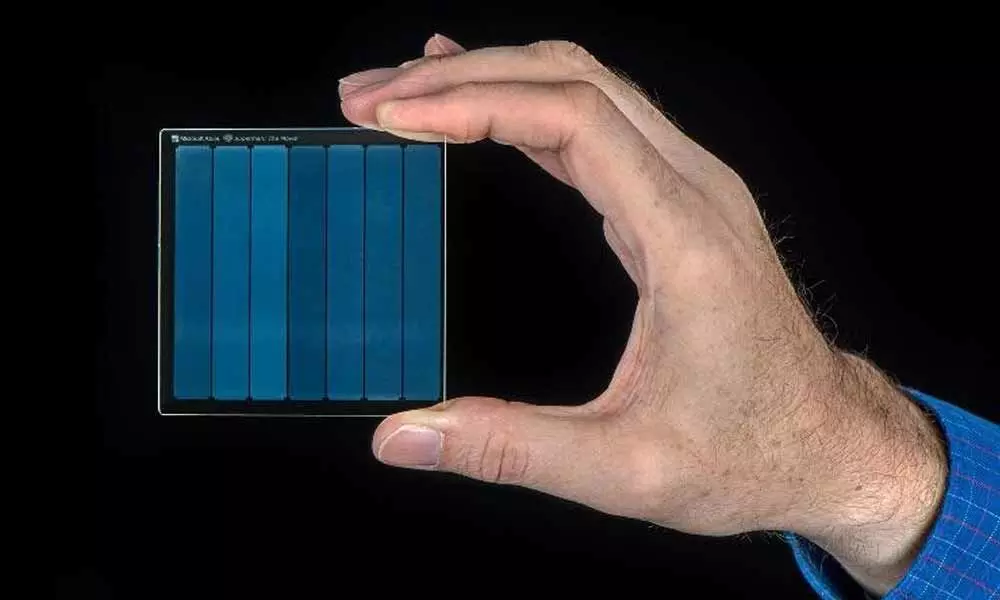Microsoft's Project Silica: Stores Data On A Quartz Glass

Microsoft and Warner Bros, just proven that they are leading the game in both shielding archives and in storing data for generations to come.
With growing data and technology, the world is trying its best to find solutions to store the 100 zettabytes of data that are likely to come to the cloud by 2023.
Microsoft and Warner Bros, just proven that they are leading the game in both shielding archives and in storing those to come in future.
CEO Satya Nadella, at Microsoft's Ignite conference, showed off a piece of quartz glass the size of a drink coaster. Inside the glass was stored a 143-minute film, Superman.
The technology is the outcome of Microsoft Research's Project Silica. This was set up to design a new storage system for the cloud.
Project Silica's researchers have been working on the development of ultrafast laser optics, which they used to encode the entire Superman film in a glass.
Using an ultrafast pulse laser, they wrote 'voxels' inside the glass – that is, the three-dimensional equivalent of the pixels that make up an image. Each voxel, therefore, has its unique orientation, depth, and size, which makes it a unique encoder for the film.
Because the voxels are inscribed at the nano-scale level, they can be written in several layers along with the glass. For example, a two-millimetre piece can comprise more than 100 layers of voxels, which allows high-density storage.
Microsoft claims the data in the glass can repel being boiled in water, microwaved, baked in an oven, flooded, scoured, and demagnetised. By permanently changing the structure of the glass, the laser makes sure that the information is printed securely for thousands of years.
Ant Rowstron, deputy lab director at Microsoft Research Cambridge, said: "One big thing we wanted to eliminate is this expensive cycle of moving and rewriting data to the next generation."
"We really wanted something you can put on the shelf for 50 or 100 or 1,000 years and forget about until you need it."
To carry out Project Silica, Microsoft partnered with the University of Southampton in the UK, where scientists had already developed a laser-writing technology to record data back in 2016, which they claimed could have "a virtually unlimited lifetime at room temperature".
Microsoft partnered with the University of Southampton in the United Kingdom to work on Project Silica, where scientists had already developed a laser writing technology to record data in 2016, which they said could have "a virtually unlimited lifespan to room temperature".
Peter Kazansky, who was part of the project, said that this is the beginning of a new era of data archiving. "This technology can secure the last evidence of our civilisation: all we've learnt will not be forgotten," he said.
Warner Bros, Media Company, will have huge implications with this. Currently storing its 100-year long film and television archives are giving it a tough time.
In various places around the world, three copies of each asset are stored by the company. It plans to keep in mind of the earthquake, a hurricane or a fire struck one of its storage locations. It migrates its digital content every three to five years, to stay ahead of degradation issues.
The company's chief technology officer, Vicky Colf, said: "Imagine if a title like The Wizard of Oz or a show like Friends wasn't available for generation after generation to enjoy… That's why we take the job of preserving and archiving our content extremely seriously."
Storing data on glass may seem fascinating, but the technology will not help the users to play films at home on a specially-made quartz glass DVD player.
Only a computer-controlled microscope can read the voxels encoded by the laser in the glass. This microscope uses machine learning to decode and reconstruct the patterns that come out when polarised light is shone through the glass.
Therefore, the data stored in the latest technology will not be information that should be accessed regularly. Reasonably, Microsoft described it as 'cold data', or archival data that companies must maintain but do not need to see for months or years.
Cold data includes medical data, legal contracts, media files or even urban construction plans that cities need to keep.
"We are not trying to build things that you put in your house or play movies from," said Rowstron. "We are building storage that operates on the cloud-scale".
Microsoft is interested in the technology that exists entirely for the cloud, something it previously described in its mission statement for the Project Silica. It said its research was not related to the deployment of information outside the cloud such as offices, homes, mobile phones or business data centres.
Microsoft warns that there is a lot of work ahead before the physical quartz glass files can be used at scale. To do this, Microsoft engineers would need to accelerate data encoding along with the increase in data density.








